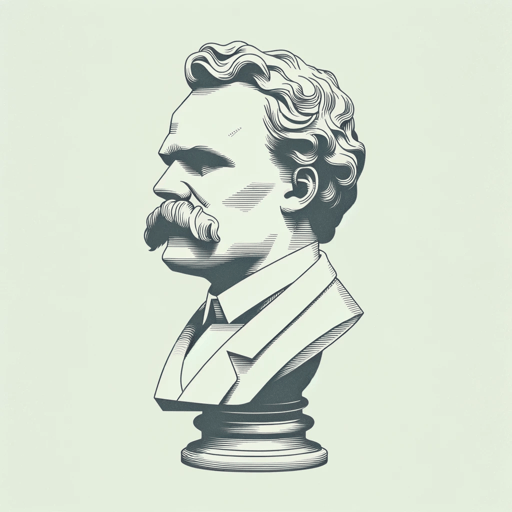36 pages • 1 hour read
Friedrich Nietzsche, Ed. Walter Kaufmann, Transl. R.J. HollingdaleThe Will to Power
Nonfiction | Book | Adult | Published in 1901A modern alternative to SparkNotes and CliffsNotes, SuperSummary offers high-quality Study Guides with detailed chapter summaries and analysis of major themes, characters, and more.
Summary and Study Guide
Overview
The Will to Power is a work by German philosopher Friedrich Nietzsche. First published in 1901, it is a collection of notes from the last productive years of his life, between 1883 and 1888. These notes were organized under a series of thematic headings by Nietzsche’s sister, Elisabeth Förster-Nietzsche, and his friend Peter Gast. Although not the systematic magnum opus that it is sometimes claimed to be, The Will to Power covers most of the major themes of Nietzsche’s philosophy including his controversial critique of Christianity and Christian morality. The work also covers his theory of the “will to power” and his concept of “the eternal recurrence.” The central preoccupation of Nietzsche’s notes is the problem of “nihilism”: how to affirm life when traditional, meaning-giving values have been undermined by science and the rise of the middle class. This guide uses the Walter Kaufmann and R. J. Hollingdale translation of The Will to Power published by Vintage Books in 1968.
Summary
The Will to Power is divided into four books, each made up of between two and four parts. Some of these parts are divided into sections, indicated by this guide’s subheadings. There will be one analysis section each for Books 1 and 4, as these are the shortest, and two analysis sections each for the significantly longer Books 2 and 3. This organization also corresponds to the main conceptual divisions in the text.
In Book 1, Nietzsche introduces the problem of nihilism, the personal and societal crisis that arises when the values that have previously given life meaning no longer seem tenable. He looks, in particular, at the challenge to Christian morality posed by modern science.
In Book 2, Part 1, Nietzsche considers the nature and origin of religion. He argues that religion originated in a projection of human virtues onto a divine being. Next, Nietzsche explores the origins of Christianity, which developed when Paul changed the original, metaphorical teachings of Jesus into a series of literal doctrines about salvation and an afterlife. Nietzsche argues that Paul created this kind of Christianity to appeal to the oppressed orders in Roman society. Thus, Christian values reflect the interests and attitudes of those who suffer from life.
In Book 2, Parts 2 and 3, Nietzsche examines the nature of moral values in general. Although moralities often imagine themselves to be objectively valid for all humans, they reflect the interests and perspectives of particular cultures and groups. The problem with this process of universalization is that “herd” values are assumed to apply to, and are imposed on, higher types. Lastly, Nietzsche looks at the connection between morality and philosophy. He argues that philosophy is still bound to moral values in so far as it seeks to create an ideal world beyond the irrationality and amorality of the actual one.
In Book 3, Parts 1 and 2, Nietzsche turns to epistemology, or the theory of knowledge. He argues that there are no objective facts about the world. Instead, there are interpretations that serve needs and drives—much as religion is rooted not in divine revelation but human interests. Nietzsche then outlines his theory of life, the “will to power.” He says, contra Darwin, that organic life does not primarily pursue self-preservation. It rather seeks higher expressions of its creative power. Applied to human beings, his theory implies that, ultimately, we do not seek happiness but rather self-expression, which often involves great suffering.
In Book 3, Parts 3 and 4, Nietzsche applies his theory of the will to power to the state and society. He argues that the state expresses a collective will to power in striving to overcome external enemies through war. At the same time, internally, it expresses the will to power of the herd in suppressing exceptional individuals. Nietzsche also suggests that our sense of what is beautiful and ugly reflects the way in which objects promote or impede our subjective interests. In this sense, there is no objective criterion for beauty.
In Book 4, Nietzsche examines the distinction between “higher men” and ordinary ones. He argues that while the latter are defined by narrow specialization, the former possess a holistic and synthesizing relationship to the world. They have a “Dionysian” attitude toward existence, one that can affirm everything in life, including suffering. He then builds his theory of “the eternal recurrence of the same.” The true affirmation of life would imply affirming everything that has happened, even if it repeats with no culmination, fulfillment, or end.








Related Titles
By these authors







